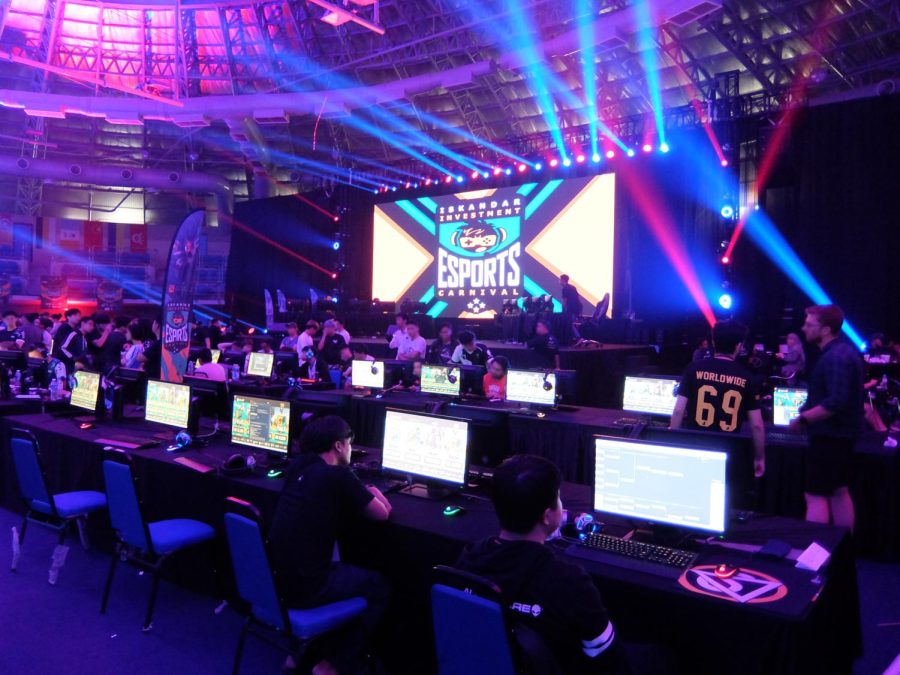What are the Benefits of Esports in Schools?
On the rise
With the introduction of Esports in schools, participation is at a constant growth rate and its influence has created new and unique opportunities for interested students.
Since Esports has been around, it hasn’t really gained traction in schools until recently. According to the National Education Association (NEA), “over 8,600 high schools started gaming teams since 2018,” and the numbers are still growing.
Popular Esports games include Overwatch, League of Legends, Valorant, Rocket League, Fortnite, and many more. But students aren’t only joining for the gameplay.
Social Impact
Being that it is relatively new, especially considering traditional sports, there’s a lot of room for development. However, students are generally looking for an outlet where they don’t feel limited physically and are able to connect with others which is what Esports provides.
In the words of Avery Dinardo, a member of the Esports club at Colonia High School, “Just finding a community that I feel like I could belong to and finding something I could contribute to is why I join most clubs actually.”
Brian Finnegan, a teacher at Colonia High School and advisor of the Esports club shares how, “there were kids in this building that were pretty talented at games and I wanted to give them a chance to showcase that. I had a tennis player who graduated last year who I just knew without anyone knowing, quietly, was a fantastic Rocket League player. And I wanted to give him a platform and then the more I talked and looked into that space, the more I kept finding we have some very talented Esports gamers in this building.”
He goes on to mention how this activity has helped so many students by giving them a space for companionship and how much it’s encouraged students, “to demonstrate their talents in a way they’re not really able to in school.”
Educational Opportunities
Alongside social benefits, there are also educational benefits that Esports provides beyond just gaming. Like the use of strategy and teamwork that can be used in many other aspects of the real world. And much like traditional sports it utilizes similar, if not the same, aspects without utilizing one’s whole body.
As noted by graduateprogram.org in their article ‘Esports’ Rise as a School Sport’, “growing interest from students in game design classes, the building blocks for continued growth of esports are in place.”
Under that umbrella of interest, not only technological career paths emerge from Esports but event management, content creation, journalism, and marketing grow from an interest in competitive gaming.
Finnegan also adds, “We’d be looking for streamers, spellcasters, podcasting and event planning, the development side of things,” allowing students to be able to gain experience on the side.
Scholarships
Esports is quite literally changing the game within schools as it is not only a hobby but an activity where students can achieve something valuable and even earn scholarships.
Because of this growing rise, even universities are offering scholarships, according to an educator’s blog, “The University of Texas at Dallas has an esports League of Legends, and students can earn scholarships from $1,000 to $6,000 per student. The University of California at Irvine has the same scholarship structure. And the Harrisburg University of Science and Technology offers 22 full-ride scholarships annually.”
Even a good portion of New Jersey colleges offer benefits when it comes to Esports. For example, NJIT has its own team where they go against other colleges for scholarship money, NJCU has an Esports program, with opportunities for students to participate in tournaments and learn more about Esports, similar to the other schools that offer an Esports program.
Challenges
However, Esports organizers in schools might face some challenges in trying to convey its worth to parents or even staff depending on the situation, mostly because it’s viewed as unconventional.
Although there are studies that attest to its benefactors like one article on EdTechMagazine stating, “in 2023 alone, esports participants attended school for an additional 7.34 days and had a 19.3 percent lower absentee rate than nonparticipants.”
Issues from skeptics to technology will always exist but Esports continues to expand in schools across even the world. However it continues to show its value to students who might want to pursue that passion or have it as a hobby.









